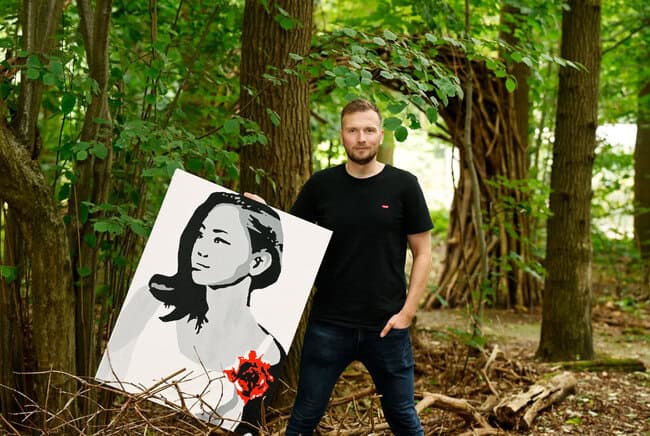
For a Cursor Special about the explorer, Monique van de Ven and Tom Jeltes interviewed eight pioneers of the Eindhoven University of Technology. Today: university professor Maarten Steinbuch. “I want to create a thousand jobs here within ten years in surgical robot technology with our startup.” Pictures by Bart van Overbeeke.
We publish one TU/e-Pioneer-story every day – Read the complete series here
Maarten Steinbuch (57) is a university professor at TU/e and head of the Control Systems Technology group at the Department of Mechanical Engineering. In addition, he is the scientific director of the High Tech Systems Center. In the media and on his blog he is a strong supporter of electric vehicles and has been involved from the outset with several startups in the field of medical robotics. Last year he was invested as Simon Stevin Master – the highest distinction in Dutch engineering science.
More from and on Maarten Steinbuch here
What question would you like to be asked?
“Where does your drive to color outside the lines come from? Not that I’m sure I have a good answer for that. But the freedom that you get at this university does enable people to get the best out of themselves. I see solutions to all sorts of challenges and fortunately, this organization accepts that I don’t stay within the bounds of my own box – ‘doing research’.”
What led you to become a pioneer?
“As a child, I used to check out the bulky waste households put out for collection, in search of old prams. We used to build a wooden frame around them and turn them into powered vehicles using a pipe and wads of cotton that we set alight with mineral spirits (white spirit). Creating things, I’ve had that since a young age, but that’s true of many mechanical engineers. At Philips, I felt like less of a pioneer, but I did learn to do sound research. Actually I only really came into my own when I started working at TU/e and came across automotive. That’s when I saw that I could cross the boundaries of my own group and have an impact on the entire university.”
What is it about your personality that makes you a pioneer?
“It’s not enough to stake out your own field: you have to transform a distant prospect into concrete steps, and manage to get other people on board with you. The latter is probably my greatest strength. I respect everyone’s role and try to be approachable for everyone. People sense that, and that’s how you get them on board. And my field is control technology, where it is all about corrective measurements. So I always try to listen carefully, and then to correct myself.”
How do you relax?
“My weekends are sacred. From 7 p.m. Friday evening until 8.30 p.m. on Sunday evening my time is my own. I spend that time at home with my wife, and we enjoy our garden and animals. We sit on the sofa and watch The Voice of Holland; I’ll have goosebumps and tears in my eyes if the music is really good. We look forward to it all week. I need my work-free weekends to be fit to face another week of 65 to 79 hours.”
What will it take for you to say that your life has been a success?
“I still have two dreams: to create a thousand jobs here within ten years in surgical robot technology with our startup, and to make a success of the Eindhoven Engine (in which knowledge institutions and industry are intended to solve problems together, ed.). And then for my wife and I to have twenty years of good health in which to enjoy our retirement. If after that there’s a pill for eternal life, I will start studying sociology, so I can better understand how people cooperate and can find better forms of cooperation.”
This interview was first published in Cursor’s ‘Explorer’-special.









